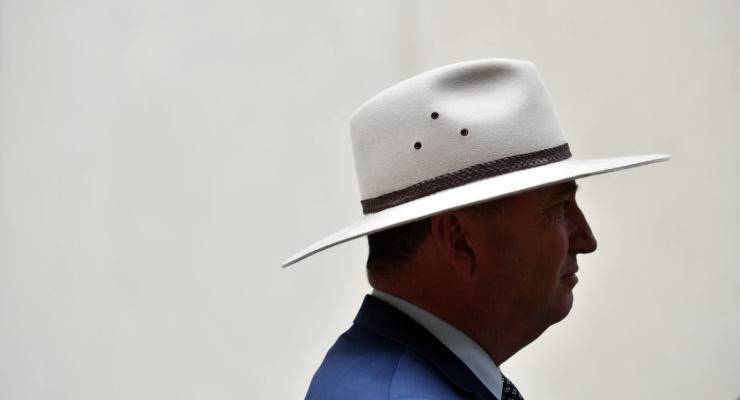
It’s enough to make a genuine conspiracy theorist cry. The press gallery conspired to suppress Barnaby Joyce’s relationship with a staffer, according to social media and some mainstream media commentators. Either the conspiracy was because of the Machiavellian machinations of Malcolm Turnbull’s office (despite past form suggesting that they’d struggle to spell Machiavellian on a good day) and the complicity of journalists, or because of some Boys’ Club mentality that wilfully applies a double standard to male politicians.
Some of us, of course, were carefully preparing the groundwork for this conspiracy eight years ago just so we could look consistent last October. And even cunningly defended Julia Gillard from commentary about her personal life. All in a day’s work in the press gallery, where we regularly convene to identify what we’ll conspire to withhold from the public.
Meantime, an actual, real-life conspiracy between the government and media was being ignored. On Monday, Crikey had a crack at the ABC and Fairfax for handing back to the government documents that should have been published. The issue got little interest — even our News Corp friends, usually ready to seize on any excuse to bag their rivals, were silent. Then veteran journalist and editor Brian Toohey also got stuck into the ABC in Wednesday’s Financial Review (the Canberra Times, which acted similarly to the ABC, was missing from Toohey’s piece). That stirred a few journalists up, but that was it in terms of media criticism of the behaviour of those outlets (another veteran journalist, Alex Mitchell, had a go at the ABC on his blog yesterday). The only issue that elicited further coverage was the schadenfreude-laden reporting that the ABC had had to apologise to Kevin Rudd for how it covered one of the few stories it told from the trove of documents.
That most journalists and editors — and not merely at the ABC and Fairfax — thought collaborating with the government to hide documents because security agencies asserted they were a matter of “national security” was OK, is a perfect “boiling frog” moment. The boiling frog metaphor has been getting a workout lately in the US where people are reflecting on how democracies transition to authoritarian societies. It doesn’t just happen in a day, it happens bit by bit, with minor outrages becoming normalised, with people’s standards of what is acceptable and not acceptable, of journalists’ and editors’ standards of what is and isn’t worthy of coverage, progressively changing so that, after a time, what would have been a major scandal just a couple of years ago is now rationalised away, even by critics of a government, as something almost trivial.
It’s not just in the US, but here as well. In some ways, it’s worse. Here, the claims of security bureaucrats are not treated sceptically, as the self-interested assertions of the powerful that must be scrutinised and tested, but usually accepted at face value. After all, no media outlet wants to be accused of undermining “national security”. There are, of course, moments when the behaviour of the media really does threaten national security — such as when Seven gave a platform to a neo-Nazi to vilify other people in the community. But we know that such behaviour does indeed undermine community cohesion and make the job of security agencies to protect us harder. Publishing cabinet documents a few years earlier than permitted under our appalling cabinet secrecy laws isn’t even comparable.
Watch what happens with the government’s new push to criminalise journalism. As with its 2015 effort to pass laws enabling it to jail journalists, the government will throw the major media companies a bone by tweaking its bill to put some more hurdles in the way of prosecuting them. But as with the 2015 laws around reporting special intelligence operations, it will still amount to a significant extension of the government’s powers to silence whistleblowers and deter public interest journalism. The major media outlets will go away happy to have achieved a “win”. But the temperature would have increased a few more degrees.
If you want a conspiracy, you’re looking right at one. And it’s got nothing to do with the salacious details of the life of the Deputy Prime Minister.








Crikey is committed to hosting lively discussions. Help us keep the conversation useful, interesting and welcoming. We aim to publish comments quickly in the interest of promoting robust conversation, but we’re a small team and we deploy filters to protect against legal risk. Occasionally your comment may be held up while we review, but we’re working as fast as we can to keep the conversation rolling.
The Crikey comment section is members-only content. Please subscribe to leave a comment.
The Crikey comment section is members-only content. Please login to leave a comment.